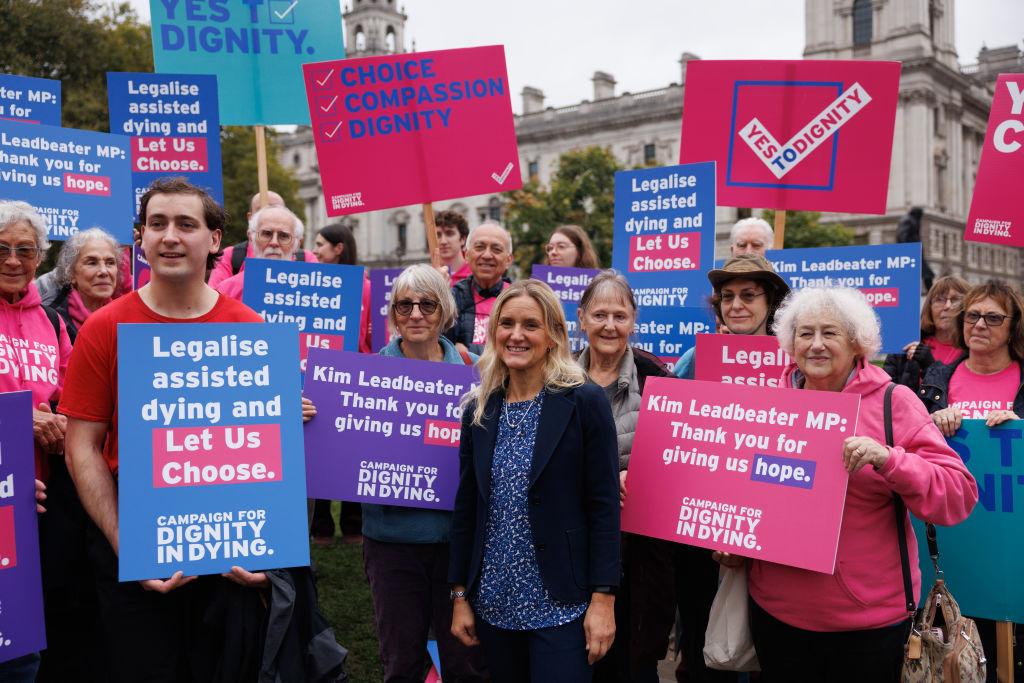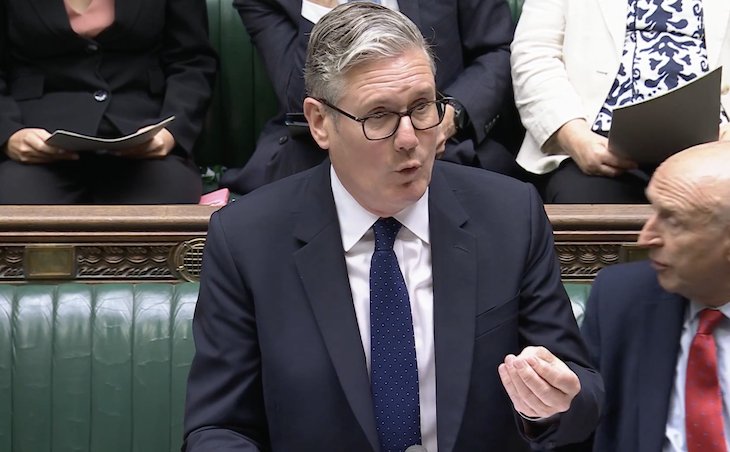How do you make assisted suicide safe? In recent months, a large part of Kim Leadbeater’s answer has been to point to the involvement of psychiatrists. Having a psychiatrist sign off each death, Leadbeater said, would ‘add expertise’. They would be part of a much-touted ‘multidisciplinary’ approach. In particular, they would be able to check that applicants met the threshold of the Mental Capacity Act.
There’s just one problem. The psychiatrists themselves appear to think Leadbeater’s bill is a dangerous mess.
I’m paraphrasing, of course. But last night’s statement from the Royal College of Psychiatrists, in which they identified nine major problems with the legislation and said they ‘cannot support’ it, is a major blow to the bill’s credibility.
For one thing, it is a reminder of the amateurishness which has been such a mark of this whole saga. Originally, Leadbeater’s bill required a High Court judge to sign off every case. She dropped that requirement under pressure from the Ministry of Justice, who told her it was unworkable.
The replacement system, an ‘expert panel’, has no judges, and none of the powers of a court; instead it has a lawyer, a psychiatrist and a social worker. It was meant to reassure MPs that this was still a rigorous process, despite the High Court judge being axed. (Leadbeater briefly tried to popularise the term ‘Judge Plus’ – having subtracted the judge – to make the panel sound more impressive.)
But, remarkably, Leadbeater seems not to have consulted the Royal College of Psychiatrists before announcing that their members would be assessing thousands of assisted suicide applications every year. And now it seems she is dragging them into a process they regard as fundamentally flawed.
The heart of the matter is this. A psychiatrist’s role is to care for the psychologically troubled. That includes, under normal circumstances, terminally ill people who say they want to end their lives. This bill asks something very different: it wants psychiatrists to rubber-stamp such people’s access to lethal drugs. The tension between these two roles is obvious.
So, the Royal College asks in its statement, what is a psychiatrist’s ‘duty of care’ towards the vulnerable people who come forward seeking an assisted suicide? Are they, as under the existing guidelines, meant to assess that person’s psychological state, and their risk factors for self-harm and suicide? Or is all that now irrelevant? As the College puts it: ‘Any role a psychiatrist plays in an AD/AS process should be consistent with the core duties of the profession, including determining whether a person’s wish to die can be remedied or treated.’
The president of the College, Dr Lade Smith, puts it even more strongly. Psychiatrists, she says, are meant to consider the ‘unmet needs’ of people who are suicidal: could they be helped if they got the right healthcare and support, the right assistance with housing and finances and so on? The Bill, Dr Smith says bluntly, ‘does not honour’ the ‘psychiatrist’s role’.
The College’s objections will make uncomfortable reading for the bill’s supporters
It would be hard, realistically, for Leadbeater to deny any of this. She has consistently said that anyone, no matter their psychological state, should be able to access assisted suicide as long as they meet the bill’s broad criteria. For instance, she has said that the feeling of being a burden on family may be a ‘legitimate’ reason to seek assisted death; and has admitted that, under the bill, a terminally ill person could receive lethal drugs if their sole reason was that their care was too expensive.
As one of her closest allies, the Labour MP Jake Richards, has said, assisted suicide applications should be judged only on the broad criteria: that the applicant is terminally ill, isn’t being coerced, and so on. ‘This is not a “welfare” decision,’ Richards argues: ‘The panel…is not saying, “What is in the best interests of this person?”’ But healthcare professionals who spend their lives asking that question may well recoil from such a model.
The College’s other objections will also make uncomfortable reading for the bill’s supporters. The Mental Capacity Act, which Leadbeater has made a key plank of the bill, is simply the wrong framework, the psychiatrists say. Nor do the safeguards protect people with eating disorders. As for the bill’s conscientious objection clauses – which Leadbeater repeatedly claims to have strengthened – RCPsych says these are inadequate too.
Another awkward point is the workability of the whole scheme. Leadbeater wants a psychiatrist to examine every case. But the College says this is unrealistic when psychiatry services are already stretched further than they can bear: almost one in six consultant psychiatrist posts are ‘vacant or unfilled’. In short, ‘There are not enough consultant psychiatrists to do what the Bill asks.’
The Leadbeater Bill has been described by various MPs as a ‘farce’, an ‘embarrassment’, ‘irredeemably flawed’ and ‘beyond a joke’. The Royal College of Psychiatrists have not said anything as rude as that. But their careful questioning of the legislation may prove to be the most devastating critique of all.







Comments